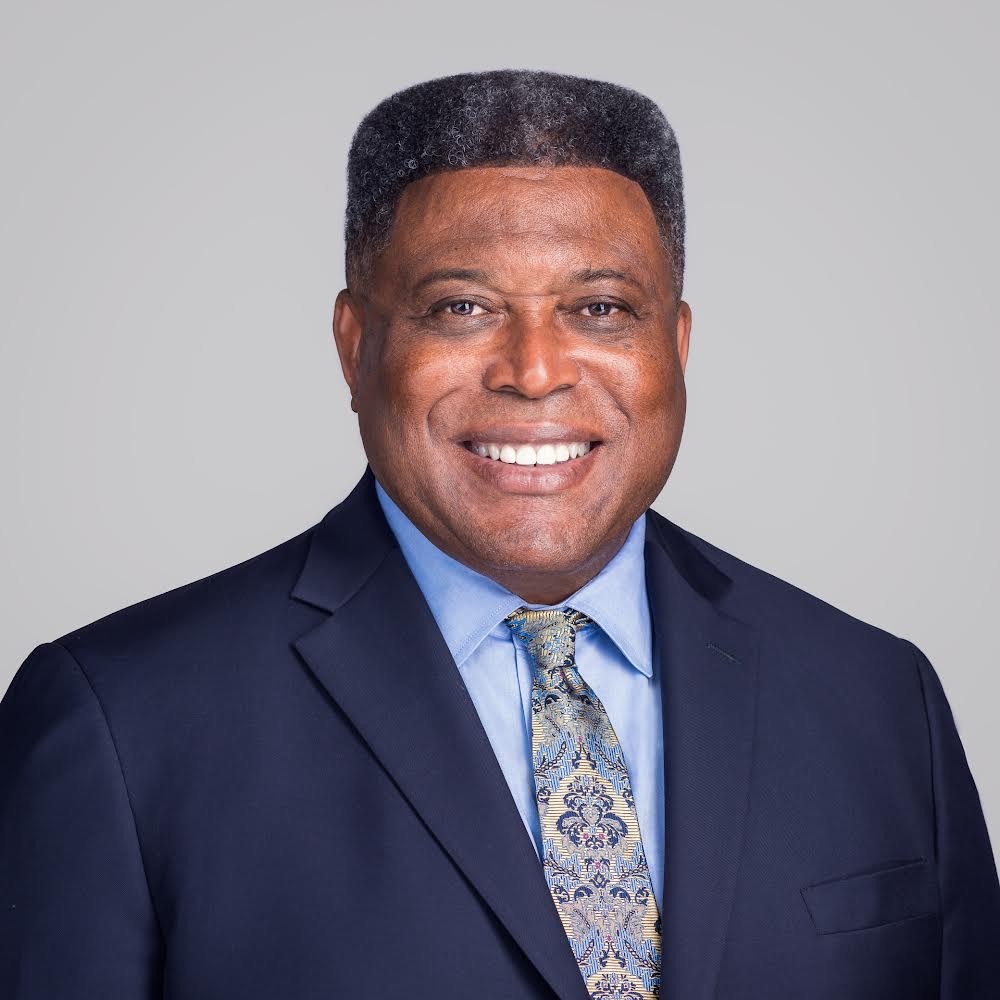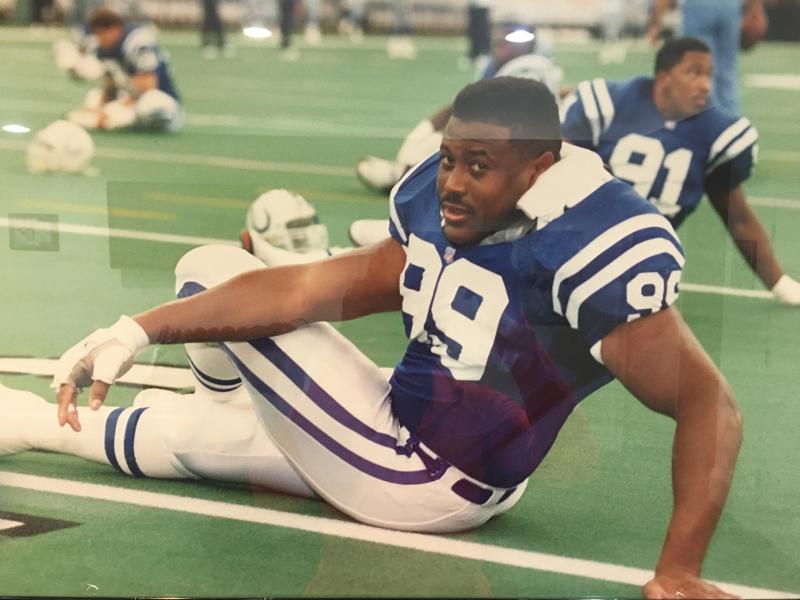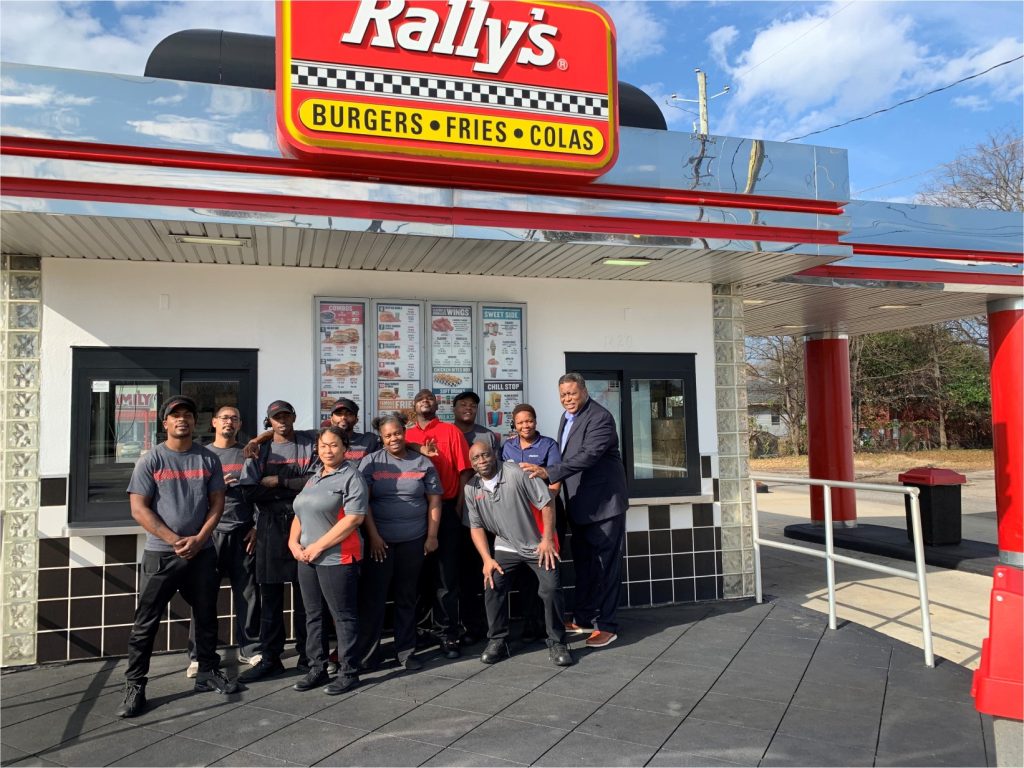Franchising is a safe route to business ownership, and a safe place in which to invest money for many former professional sportspeople in the U.S. As the entire franchising community knows, Shaquille O’ Neal has his own brand in the form of Big Chicken, much like Floyd Mayweather’s Mayweather Boxing + Fitness. The likes of LeBron James own numerous Blaze Pizza locations and Magic Johnson owned many Burger King and Starbucks locations.

The buzz and high that come from playing competitive sports in front of millions is nearly impossible to replicate, but the sense of process, success, reevaluation and going again is something football, basketball, baseball players and all competitive sportspeople are used to.
Donnell Thompson, a former defensive end for the Indianapolis/Baltimore Colts, made his foray into franchising in 1998, and is the proud owner of nine active Checkers and Rally’s restaurants, with three more on the way. He exemplifies the path into franchising and entrepreneurship that many former athletes take.
The journey from NFL to franchising
The NFL is one of the richest and most prestigious sports leagues of any kind in the world, and a spot with any team is highly coveted. Thompson made the cut, and enjoyed an entire decade in the sport, where many only last two or three years. Over the course of ten years, Thompson had been drilled into becoming a hard worker, and more importantly, someone who can pick up new concepts and strategies.

“After about my fourth year in the NFL, I applied for a McDonald’s program that allowed you to possibly buy a restaurant if you finished your training program, but there were no guarantees. Every day, I worked five days a week,” said Thompson.
“And I was playing in the NFL at the time, I worked for six months in offseason. Football life is a relatively short lifespan when it comes to playing and most people don’t play more than two, two-and-a-half years. So, I figured I had to do something else at some point.”
Even with no promise of being able to purchase a store, Thompson worked hard at it and was able to buy his own McDonald’s location in 1998.
Transitioning into a new career can be difficult and fraught with risk. The move from the NFL into franchising appears a left-field move, but there are great similarities between franchising and professional sports, especially football.
“I kind of felt that playing football and running a franchise is very much the same, in a sense. It’s all about people, it’s all about team building. It’s all about repeating the same play,” said Thompson.
“I’ve run my business just like a football team in the National Football League.”
Franchising’s strength is its proven processes and operations. It doesn’t need someone to come in and improve things, or imagine new products, services or processes. That work is already done, and is ongoing at the franchisor’s head office. Franchisees, much like players, are expected to work hard, learn their business inside out and remain on top of every department.
Why franchising works for sports stars
While it doesn’t appear so on the surface, there are a great many similarities between football and franchising, as opposed to non-franchised business. Franchising is an accessible form of business ownership for most. It’s essentially a ‘business in a box’, with a proven brand, proven marketing strategy, cost-effective operations, easily replicated processes, and profitable units.
Football players are not asked to form the plays or strategies, their job is to enact them. Football players spend a great portion of their younger life training for this, and those who reach their goal even for one or two years are amongst the cream of the crop.
“You know, there’s a game book, which is the O and T (operations and training) manual. And you take that manual, and you treat it like a game book,” said Thompson.
“We used to have 16 weeks of different game books, and each one could be as thick as 300 pages. And many of us had to learn what was in those 300 pages every single week, and every week there was a new book.
“That’s why I don’t understand why you don’t have more athletes from the NFL finding success after football, because there was so much learning that you had to do, and one of the things that the NFL does not tolerate is mistakes. In that sense, franchising and football are very similar.”
Thompson stressed the importance for NFL players to be well-read on their plays, and to know exactly how to put them into place. As a concept, franchising is exactly the same. Franchisors hone in on the most efficient operational process, and it’s up to franchisees to follow it to the letter in order to keep costs down and be successful.
It’s also why so many former professionals opt for franchising instead of regular corporate businesses, because so much of what is needed to become successful has already been figured out and replicated elsewhere.
“There’s a system that’s already set up. You just have to follow the game plan and follow their playbook,” said Thompson.
The importance of giving back
Many franchisors today ask, and even make it mandatory for franchisees to give back to the local community in one way or another.
It’s near-traditional for local sports teams to be sponsored by local businesses, and franchisees are very well placed to do this. They are likely to receive support from a larger head office and can see their fellow franchisees doing similar things across the country.

“Because of my background, we tie into a lot of sports things. We sponsor many things, be it girls’ basketball or boy’s football. We do a lot of sponsorships and donations. We do a lot of feeding before and after games too,” said Thompson.
“After the game, if the team wins many times, the football players and the cheerleaders eat for free. It just ties your business to the community, and everybody knows everybody.
“It’s important to me to give back, because of where I come from. Often, I was one of those kids that was in the free lunch program. So, I know personally how it feels.”
Thompson is a prolific Checkers franchisee with nine locations to his name, and another three on the way. One of the upcoming locations is in his hometown, Lumberton, North Carolina. He is especially pleased to be bringing Checkers to his hometown.
“We’re building a new store in my hometown, as we speak: Lumberton, North Carolina. And we’re very, very excited about it. The high school that I went to is literally 200 yards away from the site,” said Thompson.
“We’re going to be the sponsor of choice for that high school. That also ties into the occasions where a kid needs a job, he or she knows that they can come to us. If teachers have certain things going on that may need us to help them with, we’ll be there for them. That’s part of the business.”
Like many franchisees, Thompson gives back because he wants to, and because he cares. He has been on the other end of it, and intimately knows the value of the help he provides. But it’s also plain to see the goodwill the charity generates, will help the business stay strong for years.
The problems
While the ‘playbook’ provides franchisees with all the necessary instructions, it doesn’t provide the human resources to get it done. Lack of talent has always been a problem, but has been brought into sharp focus since the pandemic began and triggered The Great Resignation. It also becomes a bigger problem when scaling up to multiple units.
“A lot of the time, you’re growing faster than the help you have. You’re just continually hiring people, I think that people are the key to the business,” said Thompson.
“[Recruitment] certainly a lot tougher, because there’s a lot of options out there. If you do have some good people then you need to work with them. Oftentimes, we’ll do whatever we can for a current member of our team.
“But for someone who has been with us for several years, there’s nothing that we won’t do for them, even things like short term loan. If Susan had a flat tire this morning and need some new tires, well, you know, what? We just gotta get her some new tires.”
Despite recruitment challenges, Thompson is still on track to open three more restaurants before the year closes. Challenges are par for the course for franchisees like Thompson, but his past experiences, resilience and training gives them all the tools needed to deal with the issue, and find a fix.



